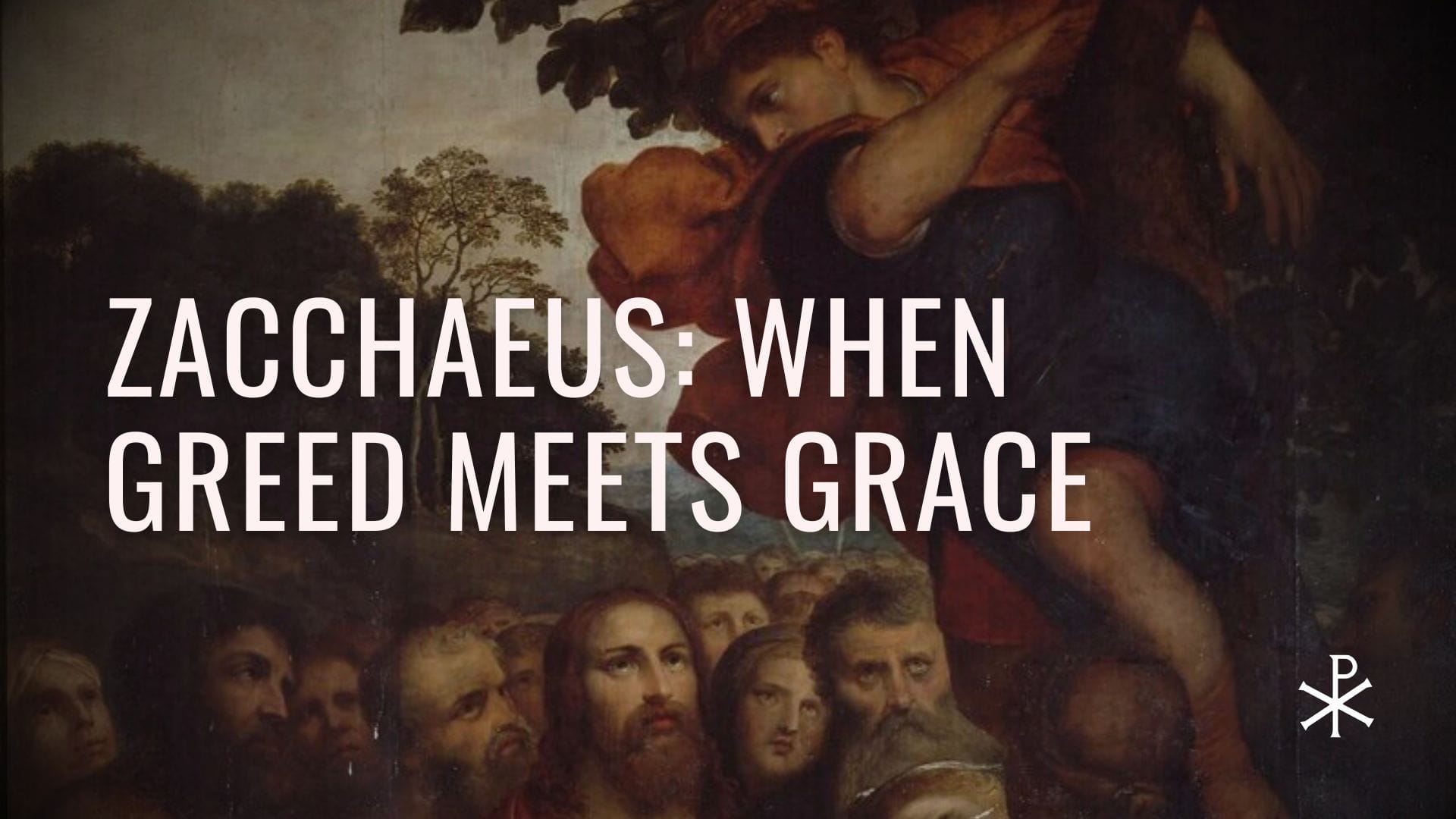Redeemed Failures, Day 25: Zacchaeus – When Greed Meets Grace
Zacchaeus’s encounter with Jesus shows how grace can turn a despised, greedy tax collector into a joyful disciple enjoying reconciliation with God and others.

Luke 19:1–10
Zacchaeus was no ordinary tax collector; he was the chief tax collector in Jericho, one of the wealthiest and most despised men in the city. His position gave him access to Roman power and Jewish resentment in equal measure. He had grown rich by overcharging his own people, taking advantage of their oppression to pad his own pockets. For that reason, Zacchaeus was not just disliked. He was hated. In Jewish eyes, he was both traitor and thief.
Yet Luke tells us something curious: Zacchaeus “was seeking to see who Jesus was” (v. 3). Too short to see over the crowd, he climbed a sycamore tree like a child desperate for a glimpse. It was hardly dignified, but something in him longed for more than his wealth could buy.
The Scandal of Fellowship
When Jesus reached that spot, He looked up and said, “Zacchaeus, hurry and come down, for I must stay at your house today” (v. 5). The crowd grumbled. Of all the homes in Jericho, why this one? Why eat with a man who had cheated God’s people? They expected condemnation, not fellowship. But Jesus did the unthinkable. He favored the despised, entering the home of the very man everyone else couldn't stand.
This is the scandal of grace: Christ came to seek and save the lost (v. 10). He did not wait for Zacchaeus to clean up his life. He called him by name, entered his house, and extended mercy first – as a matter of divine urgency.
Repentance with Fruit
Zacchaeus’s response revealed the reality of his conversion. He stood and said, “Behold, Lord, the half of my goods I give to the poor. And if I have defrauded anyone, I restore it fourfold” (v. 8). This was more than remorse. It was repentance bearing fruit. He recognized that sin against God had also wronged his neighbor, and grace compelled him to make restitution. He was not earning salvation; Jesus had already declared it: “Today salvation has come to this house” (v. 9). His works were not the root but the fruit of grace and mercy.
Vertical and Horizontal Reconciliation
However, Zacchaeus reminds us that forgiveness of sin before God does not erase the earthly consequences of our sin against others. True repentance, empowered by grace, seeks to put things right whenever possible (Matt. 5:23–24; Rom. 12:18). This is not a denial of the sufficiency of Christ’s cross, but its proper outworking. The God who reconciles us to Himself also calls us to pursue reconciliation with others as much as it depends upon us.
An Encouragement
Many live with the weight of past wrongs: debts unpaid, relationships strained, injustices unacknowledged. Even when we know God has forgiven us, shame still clings and whispers that we are beyond restoration. The gospel speaks a better word. In Christ we are freed not only from guilt before God but also from the fear that keeps us from acknowledging our wrongs and seeking forgiveness. Others' responses are between them and God. Our part is to walk in the reconciling grace we have received.
Zacchaeus discovered what many of us need to remember: when grace moves us to restore what we have broken, shame begins to lose its grip. In giving back, he received far more: the joy of reconciliation and the freedom of a new identity. That joy is one more glimpse of the kingdom of God, where the greedy are made generous and the despised are made beloved.
Enjoy all 31 devotionals in the Redeemed Failures series here —stories of grace, second chances, and the God who still restores.
